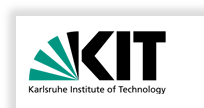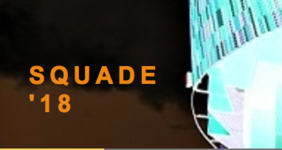SQUADE 2018 the 1st International Workshop on Software Qualities and their Dependencies CfP
This workshop focuses on increasing our understanding of the nature of Software Qualities (SQs), ilities, or extra-functional requirements (reliability, usability, affordability, etc.), and their interrelationships, and of bringing them into balance in the practice of software engineering. The relevance and timeliness of this topic reflects the current and future trends toward more software-intensive systems, with greater complexity, autonomy, speed of change, and need for interoperability within systems of systems, given the frequent system shortfalls and overruns that occur when their SQ balance is not achieved. Some good research and practices are becoming available, but there is overall chaos among SQ practices, definitions, standards and relationships. The workshop aims to bring together SQ researchers and practitioners to help create more solid foundations for dealing with SQs.
The following are five primary areas of interest for the Workshop:
- SQs in practice: Experience reports, lessons learned, case-studies, benchmarks, experiments, negative results due to unknown dependencies, best practices and success stories.
- Specification and modelling notations of SQs: These include but are not limited to: a specific property (cost, performance, resource consumption, reliability, security, etc.), set of properties, traceability during the development process, traceability over the software lifecycle, model annotations.
- SQs validation and verification: These take the dependencies into consideration: measurements, evaluation methods, trade-off analysis, formal methods, multi-criteria analysis, testing, simulation of a given property or set of properties.
- SQs Data Analytics and Machine Learning: Significant progress is being made in large-scale analysis of a software system’s code smells, technical debt, vulnerabilities, and architecture deficiencies across a software system’s commit history. Further research is underway in exploring such machine learning approaches as learning predictive models, transfer learning, uncertainty in models, continuous verification, deep learning, model optimization, and self-adaptation.
- Ontological Dependencies among SQs: Dependencies among SQs include synergies, conflicts, means-ends relations, quantitative tradespace models, and SQ variation by system state, process, stakeholder value propositions, and operational context. Ontologies addressing these sources of variation enable more precise and consistent evaluation of SQ dependencies.
Contributions from other SQ-relevant topics are welcome as well.


